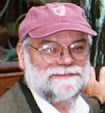My niece Rachel Sanders asked me this question:
4. What was your role as a conscientious objector? What prompted you to become one? What was the process like?
I was issued Conscientious Objector (CO) status sometime in the summer or fall of 1970. The process of attaining this status was incredible and complex.
During the spring of 1970 my draft board in Cleveland was actively pursuing me. They knew that I would be graduating from college in June of that year and my student deferment would be up. They told me to go to Chicago to get a physical (that must have been in March or April of 1970) and I mailed back to them that I was unable to do that. OK, they responded, then you will have to get your physical in Cleveland in June. Meanwhile, I was planning to apply for CO status and trying to figure out how that was done. At this point I was convinced that the war was immoral. It was clear in my mind that I was not going to participate. I felt like I had 3 choices: I could be granted CO status and do "alternate service"; I could go to jail; or I could go underground or try to emigrate to Canada. What I was not going to do was be part of the military in this terrible war. I realized that this could alienate me from my Dad and many others in my family (gee, even my brother Denny, who might have been in the Navy by this time).
I had my physical during the summer of 1970. I had just started working a part-time job at "Terminal Parking," in Downtown Cleveland. My pay was $2.50 per hour. Believe it or not, I enjoyed working with the Killeen family, who owned the parking lot. I had a good time at this job. My draft physical took place in the basement of the Erieview Tower on East 9th Street. It was a circus! Dozens, maybe hundreds of boys standing around for hours in their underpants. I recognized one fellow, my grade school classmate Tony Severino. Tony had been a terrific high school and college athlete, baseball and football. He looked like Mr. America. But Tony had some sort of cyst on his back--and a note from his doctor. Tony failed his physical, but I passed it.
In the weeks that followed I submitted my request for CO status to my draft board. It was a long, detailed essay, based mostly on my religious views, and backed up with letters of support from a priest, Fr. Maurie Amen, CSC, from a friend, Chris Cotter, and from another friend who was a soldier, Steve Shields (Steve died in Vietnam two years later). The draft board considered my materials and had a hearing for me in Downtown Cleveland. Apparently it went well, because some time later I was granted CO status.
I kept working at the parking lot until January of 1971, and then moved to Cincinnati upon the urging of my friend Chris Cotter. When I got to Cincinnati, I did all sorts of odd jobs, all the while looking for an "alternate service" job that I would do instead of military service. I finally found that job in August of 1971--working in the Health Education Department of the 12th Street Clinic, in Cincinnati's Over-the-Rhine neighborhood. I did that job for about a year and a half. By that time, the draft process had fallen apart and I felt I could safely change jobs or go back to school.
Subscribe to:
Post Comments (Atom)


No comments:
Post a Comment